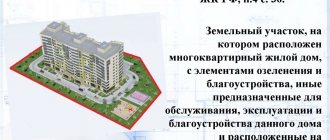An act of non-admission to an object is drawn up in cases where the owner of the property (or other person) does not allow organizations providing services or conducting inspections to enter it. This may include checking water meters, electricity or other equipment, or repair work. The ability to enter the facility may be conditioned by a decision of a court of the Russian Federation.
- Form and sample
- Free download
- Online viewing
- Expert tested
FILES
The document is also drawn up in cases where the employer does not allow his employee to enter the workplace in order to fire him for absenteeism.
In this scenario, employees of the State Labor Inspectorate or the police may become witnesses to the incident. The police are not required to go to the scene, but calling 02 (or 112) would be useful, since all calls are recorded. This will be strong evidence during a future trial.
They also resort to drawing up this document in cases of flooding of neighbors, when the resident (owner) does not allow access to common property.
Compilation algorithm
The document assumes a partially free form of presentation (general). It should contain an introduction, body and conclusion. The header must indicate the location (address) of the premises, organization or site.
Next, on the left side of the document, the locality is indicated: city, village, town, etc. On the right side, the date of completion is indicated and signatures are placed.
If the process is expected to be lengthy, then a link to the document that implies it is required. In any case, there should be only one date - the day on which the paper is drawn up.
After the “heading”, it is necessary to indicate the composition of the commission in a numbered list with a mention of what it ruled, decided or stated.
Free wording examples
After the listing there should be a description of the event. For example:
“On May 18, 2021, the commission went to apartment 5 of residential building number 10 on the street. Pushkinskaya, where P.I. live Ivanov and V.A. Petrov to draw up an inspection report of the apartment for technical condition. However, access was denied. No one ever opened the door.”
Or
“Rubtsov Vasily Petrovich was previously notified of the repair work (see appendix), but he flatly refused to let the commission members into house No. 6 on the street. Lenin mountains Izhevsk".
The wording could be like this:
“Arriving at the checkpoint of the country village “Quiet Dawns”, guarded by Garant LLC, members of the commission demanded to let Alexander Alexandrovich Ivanov’s car into the territory of the country village “Quiet Dawns”. The guards of Garant LLC refused, introduced themselves, giving their last names: Petrov Vladimir Ivanovich, Kotov Arkady Petrovich (or refused to introduce themselves) and explained that the director of their organization forbade them to let anyone into the territory.”
The Supreme Court reminded when it is possible not to accept an apartment with shortcomings that do not prevent living in it
The Supreme Court published Determination No. 5-KG21-106-K2 of October 12, in which it examined whether participants in shared construction may not accept an apartment with significant violations of the requirements for its quality, if they do not interfere with the use of the premises for its intended purpose.
On November 14, 2014, an agreement was concluded between Alexander Boyko, Ekaterina Vishnyakova and Malomoskovia JSC for participation in the shared construction of an apartment building. On May 1, 2021, Malomoskovia notified that construction was completed and the facility was ready for transfer.
During the initial inspection of the apartment, Alexander Boyko identified a number of shortcomings, including significant violations of the requirements for the quality of the apartment. The developer later partially removed them. On July 27, 2019, the developer was presented with a new claim indicating a list of deficiencies to be eliminated and a requirement to draw up a corresponding act, as well as a refusal to sign the transfer act until the deficiencies were eliminated and with a proposal to conduct an independent construction examination of the finished apartment. “Malomoskovia” left the claim without satisfaction. On August 13, 2019, the developer sent a unilateral acceptance certificate for the shared construction project.
Alexander Boyko and Ekaterina Vishnyakova appealed to the Presnensky District Court of Moscow. The court noted that the current legislation and the terms of the concluded agreement establish the obligation of the participant in shared construction to accept the shared construction object under the acceptance certificate, drawing up a protocol of disagreements if there are grounds for doing so. At the same time, the presence of defects identified in the apartment does not prevent the participant in shared construction from accepting it, indicating in the act a list of these defects, registering ownership of it in accordance with the procedure established by law, and subsequently, if necessary, making demands on the developer to eliminate the defects free of charge, or for a proportionate reduction in price agreement, or for reimbursement of their expenses to eliminate deficiencies. Assessing the identified deficiencies from the standpoint of their significance, the court indicated that they do not prevent the use of the premises for their intended purpose. Taking this into account, and also taking into account the sending by the developer of a unilateral acceptance certificate to the plaintiffs, the court recognized Malomoskovia’s obligation to transfer the apartment as fulfilled, and therefore dismissed the claim in the relevant part.
When refusing to satisfy the plaintiffs’ demands in terms of imposing an obligation on the developer not to obstruct the conduct of a construction and technical study to determine the apartment’s compliance with the terms of the agreement for participation in shared construction, the requirements of technical regulations, design documentation and other mandatory requirements, the court referred to the failure to provide evidence of obstacles, noting , that agreement with the developer in this part in the presence of a unilateral act sent to the plaintiffs is not required.
The court also refused to satisfy the request to provide, within no later than three working days from the date of receipt from the plaintiffs, a written request of design and as-built documentation related to the shared construction project, for review or copying, with the costs of making a copy of the documentation being charged to the account of the participants in shared construction, since satisfaction of future claims is not provided for by law. The court indicated that the originals of the project documentation with all changes are available at the management company, where participants in shared construction have the right to familiarize themselves with the information that interests them. The courts of appeal and cassation agreed with these conclusions.
Alexander Boyko and Ekaterina Vishnyakova appealed to the Supreme Court. Having studied the case materials, the Court indicated that the fact that the developer fulfilled the obligation to notify the participant in shared construction about the completion of construction, about the readiness of the shared construction project for transfer, as well as to warn him about the need to accept the shared construction project and about the consequences of inaction is legally significant and subject to proof. .
The Supreme Court noted that if the developer violates the requirements for the quality of the object, the participant in shared construction has the right to refuse to sign the document on its transfer, and also require the developer to draw up an act recording defects and deficiencies in the shared construction object.
The court noted that, unless otherwise established by the contract, if a participant in shared construction evades acceptance of a shared construction project within the period provided for by the Law on Participation in Shared Construction, or if a participant in shared construction refuses to accept such an object, the developer after two months from the date stipulated agreement for the transfer of a shared construction object to a participant, has the right to draw up a unilateral act or other document on the transfer of a shared construction object. In this case, these measures can only be applied if the developer has information about the receipt of a message about the completion of construction by a participant in shared construction, or when the postal operator returned a registered letter because the participant in shared construction refused to receive it or due to its absence at the postal address specified by him address.
The plaintiffs have repeatedly noted that after the building was put into operation, the defendant sent Alexander Boyko a notification about the completion of the apartment building and the readiness of the apartment for transfer, but a similar message was not sent to Ekaterina Vishnyakova, the Supreme Court noted. He indicated that in the list of attachments to the registered letter and the receipt for payment for the postal item presented by the defendant, Vishnyakova’s address was not indicated, and there was no information about the refusal to receive the letter or about the return of the postal item due to its non-receipt. The plaintiffs also indicated that they twice tried to implement the method of protecting their rights provided for in clause 5.5 of the agreement for participation in shared construction, according to which the participants have the right to demand from the developer on the basis of Part 1 of Art. 7 of the Law on Participation in Shared Construction only to eliminate defects free of charge within a reasonable time, but the defendant did not take the corresponding actions in full.
The Supreme Court noted that the first instance, concluding that Malomoskovia was legal in drawing up a unilateral transfer deed and recognizing the obligation to transfer the apartment as fulfilled, did not take into account the provisions of the law defining the procedure for transferring a shared construction project by the developer and accepting it as a participant in shared construction, as well as guaranteeing the right the participant in shared construction requires the developer to draw up a report on the shortcomings of the shared construction project and refuse to sign the transfer deed until the developer fulfills the obligations provided for in Part 2 of Art. 7 of the Law on participation in shared construction, taking into account the terms of the contract.
As the plaintiffs pointed out, their refusal to accept the apartment was due to a violation of the obligation to transfer a shared construction project that complies with the requirements of the law. Meanwhile, the Supreme Court noted, the court did not determine the above-mentioned circumstances as legally significant for the correct resolution of the dispute, they were not included in the subject of proof and did not receive a legal assessment, which resulted in the incorrect application of substantive law and the adoption of a decision that did not meet the requirements of Art. 195 Code of Civil Procedure. The Supreme Court sent the case for a new trial at first instance.
In a commentary to AG, partner of the INTELLECT law firm Alexander Latyev indicated that the position of the Supreme Court is based on both the law and banal logic. “If the shareholder, due to defects in the shared construction project, has the right to refuse to sign the act and oblige the developer to eliminate the defects identified during acceptance, then it is obvious that the developer in such a situation does not have the right, instead of correcting the defects, to draw up a transfer act unilaterally. A unilateral act is provided for in the event of a shareholder's evasion of acceptance, and not in the case of a justified and legal refusal to accept until the defects are eliminated. It’s sad that understanding this requires going all the way to the Supreme Court,” he said.
“As is clear from the above, there is no uncertainty in the legislation on this matter. What is usually observed in such cases? It’s not even the reluctance of developers to correct shortcomings - it is clear that these are undesirable expenses for them, but usually not very burdensome, since in fact they force their own contractors, who allowed such shortcomings, to correct shortcomings, but the fact that until the final “clean” is signed act without comments, the object is not considered transferred. This means that if the shortcomings take a long time to correct and during this time the period for transferring the shared construction project expires, the developer will be obliged to pay the shareholder the penalties provided for by law,” explained Alexander Latyev.
He added that the developers claim that the refusal of the shareholder to sign the deed is unlawful if the shortcomings were such that they did not exclude the possibility of using the property. “However, the law does not contain such a distinction. The significance of the shortcomings is important only for deciding whether the shareholder can immediately refuse to accept the object and terminate the contract by demanding his money back, but it has no significance for determining the procedure for signing the act,” he explained.
According to the expert, such tricks of developers would not be so common if the courts were not so lenient towards them. “I’ve encountered something like this myself more than once. Sometimes it seems that the significant amounts involved in the acquisition of real estate arouse in judges a kind of class hatred towards shareholders. True, it is not clear why she shows her love for developers,” said Alexander Latyev. He suggested that another factor that forced the case to reach the Supreme Court was the somewhat exotic formulation of the claims, but the expert considered that it was quite adequate to the violation.
Lawyer, Deputy Chairman of the Moscow Bar Association "Centurservice" Ilya Prokofiev indicated that the conclusions of the Supreme Court do not go beyond the scope of established judicial practice in this category of disputes. “Often, it is in the relationship between developers and participants in shared construction that the greatest number of disagreements arise, as well as cases of abuse of rights on one side or the other. In the case under consideration, the lower courts incorrectly assessed the circumstances that are significant for the case, despite the fact that they are quite obvious,” he concluded.
Special cases
If any of the commission members does not agree with the composition or content of the document, he is still required to sign it. He also has the right to make a note after his signature stating that he has explanations and draw up a separate annex attached to the paper.
If the owner of the premises himself wishes to sign the document, then he can also do this with the right to draw up postscripts.
It is worth considering that when going to court, along with this paper, you will need to provide evidence that the defendant knew about the visit. That is, send a registered letter, a message of arrival by telegraph (with a record of delivery of the message), call the police and leave a message about the location, etc.
Results
Drawing up a document recording the fact of violation of labor discipline is one of the most important stages in the procedure for applying punishment to the offending employee. Therefore, it is necessary to pay special attention to the timeliness and correctness of its execution.
What types of penalties can be applied to employees who violate discipline, and whether a fine can be such a penalty, find out from this article.
You can find more complete information on the topic in ConsultantPlus. Free trial access to the system for 2 days.
Actions of management companies
In cases of denial of access to residential premises, management companies, HOAs and RSOs have the right to repeatedly increase payments for the use of gas, water, and electricity.
During the first month without contact with metering devices, the fee is calculated based on the average monthly consumption with an increasing factor of 1.5. After 3 months, all residents permanently or temporarily living in the premises are taken into account, and the increasing coefficient may increase to 10 and remain so until the resident makes contact.
20 days before the visit, the resident must be sent a notification; there can be several ways: telephone (with confirmation of the name of the person who answered the phone and an audio recording), e-mail, telegraph, through a personal account on the website or by fax. If the time does not suit the resident, he is obliged to notify the management company, RSO or HOA about this no later than two days before the scheduled date.







